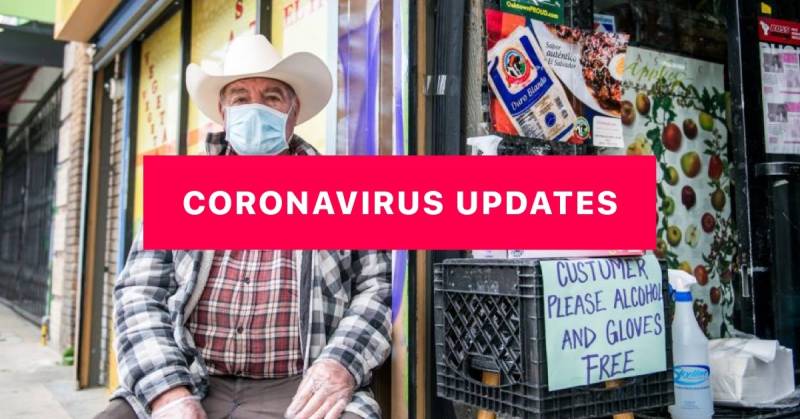California Gov. Gavin Newsom and legislative leaders on Wednesday announced a $9.6 billion spending deal aimed at aiding some of those hit hardest by the pandemic, with a new round of small business grants, $600 stimulus checks for low-income individuals and more housing assistance for farmworkers infected by the coronavirus.
The plan “will help those who are hurting most,” Assembly Speaker Anthony Rendon said in a joint statement. "We are building an economic foundation for the recovery of jobs, small businesses and, indeed, our everyday lives.”
Lawmakers plan to quickly take up the measure, with votes expected as early as Monday after budget committee hearings starting Thursday.
About 5.7 million people who earn less than $30,000 per year would get one-time payments. That includes people that the trio of Democratic leaders said were unfairly excluded from previous federal stimulus payments under the administration of former Republican President Donald Trump.
Those getting the $600 payments include households that received the California earned income tax credit in 2020. That carries the biggest price tag in the stimulus package, at $2.3 billion.
Immigrants and others who lack Social Security Numbers but have Individual Tax Identification Numbers, income below $75,000 and were ineligible for recent federal payments would get $600 — boosted to $1,200 if they also qualify for the California earned income tax credit.
The agreement widens Newsom's original proposal last month for a Golden State Stimulus plan by also providing $600 to households in the CalWORKS public assistance program, who would receive the money by mid-April.
It also now includes those who qualify for the Supplemental Security Income/State Supplementary Payment for those who are 65 or older, blind or disabled, as well as those in the Cash Assistance Program for Immigrants. The timing of those payments is being worked out with federal officials.
For small businesses affected by the pandemic, the package quadruples to more than $2 billion in money available for grants of up to $25,000. It separately includes $50 million to help cultural institutions.
Also under the new plan, more than 750,000 small businesses would be able to deduct on their state taxes up to $150,000 in loans they received under the Paycheck Protection Plan. The same ceiling would also apply to firms that received Economic Injury Disaster Loans, amounting to a combined $2 billion in tax cuts.
About 59,000 restaurants and bars would separately get two years of waived annual license fees that can range from $455 to $1,235. More than 600,000 barbering and cosmetology individuals and businesses will also be able to keep their usual licensing fees for two years.
Here is the complete list of items provided by the governor's office in what's being called the Immediate Action Agreement:
- $600 in one-time relief to households receiving the California Earned Income Tax Credit for 2020
- $600 one-time payment for immigrants and others who use a taxpayer identification number, make below $75,000 and were precluded from receiving the $1,200 per person federal payments last spring and the more recent $600 federal payments
- $600 one-time grant to households enrolled in the CalWORKS program and recipients of SSI/SSP and Cash Assistance Program for Immigrants (CAPI)
- $2 billion allocated for grants of up to $25,000 for small businesses impacted by the pandemic
- $50 million for cultural institutions
- Tax deduction of up to $150,000 in expenses covered through the 750,000 loans in the state that were provided by the federal Paycheck Protection Plan
- Fee relief ranging from $455 to $1,235 for two years for about 59,000 restaurants and bars, as well as for barbering and cosmetology businesses
- Stipends of $525 per enrolled child for all state-subsidized child care and preschool providers
- $59 million total assistance for agricultural workers, food banks, and money for diapers
- $100 million total in emergency financial aid low-income students carrying six or more units
- $20 million total to "reengage students" who have left community college because of the pandemic or are at risk of leaving
- $6 million total for outreach and application assistance for public university students who are newly eligible for CalFresh food aid
- The restoration of previous reductions to the University of California and California State University, as well as the judicial branch, child support services and funds for housing.
—Kathleen Ronayne, Associated Press

